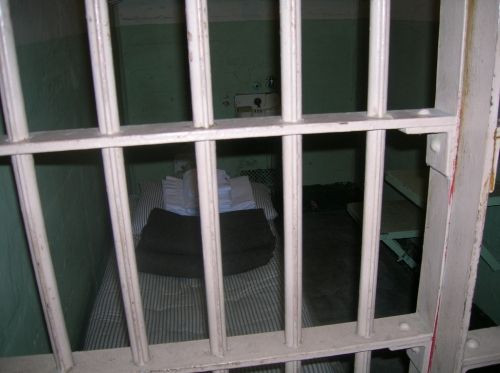New Federal Prison Rules May Impact Transgender Inmate Suits

Recent revisions in the federal prison health system could signal big changes for a handful of transgender inmates suing states prison facilities for gender reassignment surgery.
In late September, The U.S. Bureau of Prisons, which regulates federal prison facilities, released revised rules allowing transgender inmates diagnosed with gender identity disorder who did not begin treatment before entering into federal custody will now be eligible for hormone therapy, specialized mental health counseling and possibly gender reassignment surgery while imprisoned.
The changes were part of a court settlement announced on September 30.
For about a dozen male-to-female transgender inmates in California, Colorado, Idaho, Massachusetts, New York, Virginia and Wisconsin who filed lawsuits against state for denying access to gender reassignment surgery they deem medically necessary, the precedent set by this regulation could lead to states covering the surgery as well.
Prior to the new policy, federal prisoners with a preexisting diagnosis of gender identity disorder were eligible for the level of treatment they were receiving before becoming incarcerated. States prison facilities, though not regulated by the federal Bureau of Prisons, followed similar regulations.
Under the new rules, inmates in federal lockdown who hadn’t started treatment before entering the facility are now eligible for hormone therapy to become more masculine or feminine, to dress more like a male or female within the facility and potentially qualify for gender reassignment surgery when deemed necessary.
What exactly is medically necessary has been at the forefront of the debate between transgendered inmates seeking gender reassignment surgery.
Many states with inmates suing have argued states are only required to provide the minimal adequate care to inmates. But inmates argue that in their case, surgery is necessary to maintain mental stability, safety and adequate health.
A study from the University of California, Irvine, found that transgender inmates are 13 times more likely to be sexually assaulted than other inmates. A survey from the National Gay and Lesbian Task Force of transgender inmates found 35 percent of inmates reported being harassed by other inmates.
In June of this year, Ophelia De’Lonta, who was born Michael Stokes, a 50-year-old male-to-female transgender inmate in the Virginia Department of Corrections filed a lawsuit against the state in federal court for denying request for sex change surgery.
De’Lonta, who lives as a female in an all-male facility, was denied surgery in October 2010. After the denial De’Lonta attempted self-castration using disposable razors.
Though states, and many lawmakers, are adverse to using tax dollars to pay for gender reassignment surgery, the National Commission on Correctional Health Care, an organization that sets standards for correctional facilities health care, believes in some cases prisons should provide sexual reassignment surgery.
It is not yet clear, how prisoners filing suits will use the new federal regulations to get states to cover the surgery.
Published by Medicaldaily.com



























